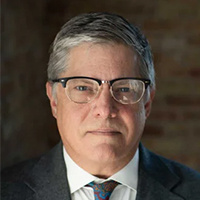Wisconsin White Collar Crime Lawyer List
Sponsored Law Firm
-
 x
x

Click For More Info:
-
The Law Offices of Richard L. Cooper, P.A.
848 Brickell Avenue Suite 800 Miami, FL 33131» view mapDWI/DUI, Drug Trafficking, Felony Nationally Ranked Top 40 Under 40
With Richard L. Cooper you can expect a trusted confidant who will work diligently to fully understand your case and determine a road map to help you regain control of your life.
800-756-2781
Kirk Bowden Obear
✓ VERIFIEDSheboygan White Collar Crime Lawyer
Wisconsin Statewide Criminal Defense in all State and Federal Courts
Attorney Kirk Obear came to Wisconsin in 1999 after serving in the U.S. Air Force for more than ten years. He graduated summa cum laude from Mount Oli... (more)
Tracey Ann Wood
Criminal, DUI-DWI, Felony, White Collar Crime, Motor Vehicle
Status: In Good Standing Licensed: 32 Years
FREE CONSULTATION
CONTACTRobert W. Keller
Traffic, Litigation, White Collar Crime, DUI-DWI, Criminal
Status: In Good Standing Licensed: 32 Years
FREE CONSULTATION
CONTACTTimothy J. O'Brien
Business, White Collar Crime, Constitutional Law, Civil Rights, Personal Injury
Status: In Good Standing Licensed: 36 Years
Thomas E. Brown
Products Liability, Litigation, Criminal, White Collar Crime, Mass Torts
Status: In Good Standing Licensed: 54 Years
Charles K Kenyon
Traffic, Employment, White Collar Crime, DUI-DWI
Status: In Good Standing Licensed: 46 Years
Timothy Mistrioty
Landlord-Tenant, Social Security -- Disability, Workers' Compensation, White Collar Crime
Status: In Good Standing Licensed: 29 Years

 Richard L. Cooper Miami, FL
Richard L. Cooper Miami, FL AboutMiami Attorney at Law
AboutMiami Attorney at Law ServicesCriminal Defense
ServicesCriminal Defense

